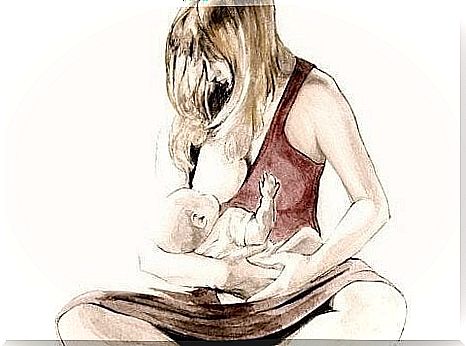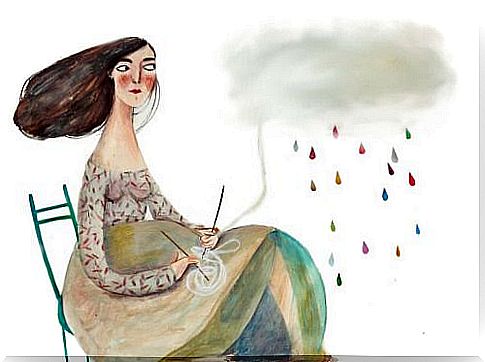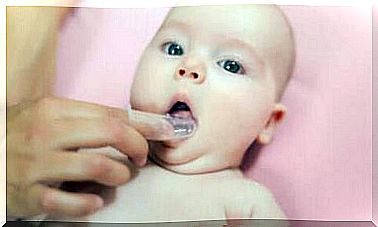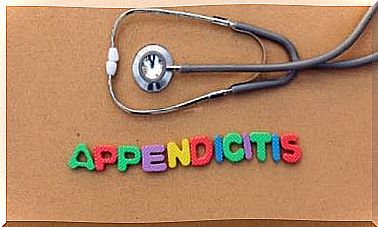No, The Maternity Period Is Not Always Rosy

The maternity period is not always rosy. During this stage, mothers don’t have much energy left. They have many fears. The lack of sleep is exhausting and their little one’s needs are infinite.
There are few moments in life as complex and delicate as the ‘childbirth’ – something many mothers were never prepared for.
Surely, if you’ve been through a complex, difficult, and painful postpartum period, you’ve heard many people around you say to take it easy, not give up, and enjoy the beautiful moments that come with motherhood.
Sentences like this undoubtedly hide the small fear that many of our relatives have, which is that we will end up in postpartum depression.
What not everyone knows, however, is that there are many different degrees and different nuances before the condition can be defined as postpartum depression. Another condition, which is not as well known, is called the ‘baby blues’.
We’ll be talking about this topic today here at You’re Mom .
The maternity period is not rosy: it is “baby blue”

If there is one thing a mother experiences when she comes home after giving birth, it is ‘the obligation to feel happy, to be 100% in her power and at the same time know that she is living the best phase of her life’.
Without a doubt she is living the dream or rather: “she will live it.” But it usually takes a few months for her body to adjust and her hormones to rebalance. When all those fears, pains, insecurities, and worries are put into context, she begins to feel comfortable in her role as a mother.
These are undoubtedly times when we need the help of those around us more than ever. Your partner should not hesitate to be that other indispensable half that complements you in daily activities. In addition, this is a time when help and advice from grandmothers and other mothers with experience comes in handy.
You will feel some sadness and that is normal: you are living with the ‘baby blues’
The maternity period is a period where almost 80% of mothers experience the feeling of indefinable sadness. Contrary to what most people think, this is normal.
This psychological phenomenon of the ‘baby blues’ is also called ‘maternity distress’. This evocative name contains a very ordinary reality that new mothers experience and it is caused by the following:
- Hormonal changes in the body
- New responsibilities
- Postpartum physical exhaustion from which a new mother does not recover easily due to her new obligations
- Personal reformulation: We become mothers whether we are first-time mothers or veterans. In the latter case, many more responsibilities and challenges need to be addressed.
It should be noted that the ‘baby blues’ is not postpartum depression. It’s almost like immersing yourself in an ocean of inexplicable sadness for 2 weeks. A little over 10 or 15 days where we feel surrounded by a mist that plunges us into irritability, tears and fear.
However, it is more of a painstaking process. After two weeks, the “baby blues” disappears along with its sad melody. This gives way to a more intense and exciting music that fills us with new nuances and motivation (this happens although the fatigue is still present).
How to distinguish the “baby blues” from a “postpartum depression”?

Postnatal depression
- Postpartum depression is a serious mental illness.
- It can start unexpectedly during the first year after delivery.
- It usually takes between 10 and 15 months.
- The mother cannot take care of herself or the baby, she feels completely overwhelmed.
- About 10% of women are affected by this.
- Sometimes it can be caused by emotional problems that the couple has. It can also be caused by unemployment or even a feeling of not being supported enough to take on the new challenge ahead.
- Postpartum depression can be overcome with the help of drugs and therapy.
The ‘baby blues’
- It occurs immediately after birth.
- It is a feeling of sadness and irritability that lasts around or just over 15 days.
- No pharmacological or psychological support is required. In cases of the ‘baby blues’ , it is therapeutic to talk to your partner, parents or friends. The passing cloud of sadness disappears on its own after a short time.
In conclusion, as you have seen in this article, it can be normal to feel emotionally depressed after childbirth. Sometimes society, with its idea that every woman who has just given birth should be extremely happy and full of energy, puts a lot of unnecessary pressure on new mothers. The maternity period is not rosy.
What all mothers need is support from those around them, as well as time and rest.









